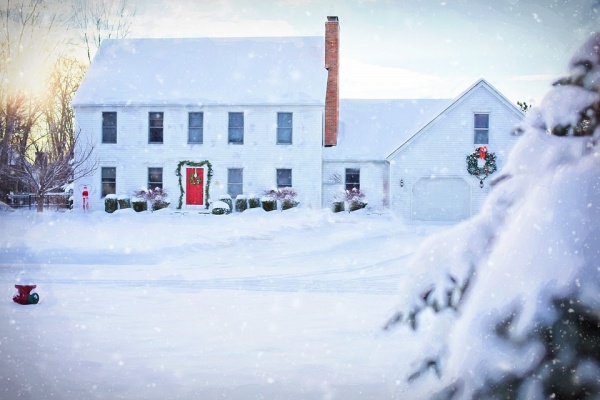We all know that sometimes a Sayreville roof repair is unavoidable. But the question is – in the winter should be it be a go or no go? Repairing or even replacing roofs in the winter is no easy task. But then again, neither is repairing or replacing roofs in the summer! There are three main categories to consider when deciding if you should replace a roof in the winter.
Sayreville Roof Repair – The Winter Assessment
Roof leaks and damages are often unavoidable, and finding them in October or later can leave you feeling unsafe and wary of having repairs down in the winter months. The worst case would be if a total roof was in need of replacement in this season. Sometimes that repairs can be easily patched and a total overhaul of the whole roof can wait until the summer. Other times that is not the case. First, you will need to know if you have a company who is willing to work on your roof in the winter.
 Be sure you are in contact with a great, experienced professional who has a great team willing to work on your roof in the winter months. That means that they have done similar projects in the past and have the right safety equipment to deal with snow, ice, and freezing temperatures. Also be sure that the team of workers who is working on your roof has good morale about the situation. Bad morale can mean corner cutting and a shotty job. Because of the increased hazard of working on a roof in the winter, you may be asked to pay more than you would in the summer, and it may take longer than you had anticipated.
Be sure you are in contact with a great, experienced professional who has a great team willing to work on your roof in the winter months. That means that they have done similar projects in the past and have the right safety equipment to deal with snow, ice, and freezing temperatures. Also be sure that the team of workers who is working on your roof has good morale about the situation. Bad morale can mean corner cutting and a shotty job. Because of the increased hazard of working on a roof in the winter, you may be asked to pay more than you would in the summer, and it may take longer than you had anticipated.
Next, be sure that the tools being used for the job are prepped and usable in freezing temperatures. Tools like compressors and nail guns can be affected by the cold weather, another reason you will need to make sure an experienced professional you can trust is working on your roof.
Thirdly, you may not be able to install every type of roof in the coldest of temperatures. For example, shingles installed in cold weather will most likely need to be metal. Asphalt shingles easily lose flexibility as they cool, and their resistance and durability is compromised. This will make cutting shingles difficult to do, not to mention bending them appropriately. In addition, the adhesive glue often included in shingles with a self sealing strip will not necessarily take in the cold weather as well as they would in the heat.
As in any situation, the risks and benefits will need to be weighed to determine if your Sayreville roof repair or replacement job can be safely and effectively done in the winter. That should be done by an experienced professional you can trust.

